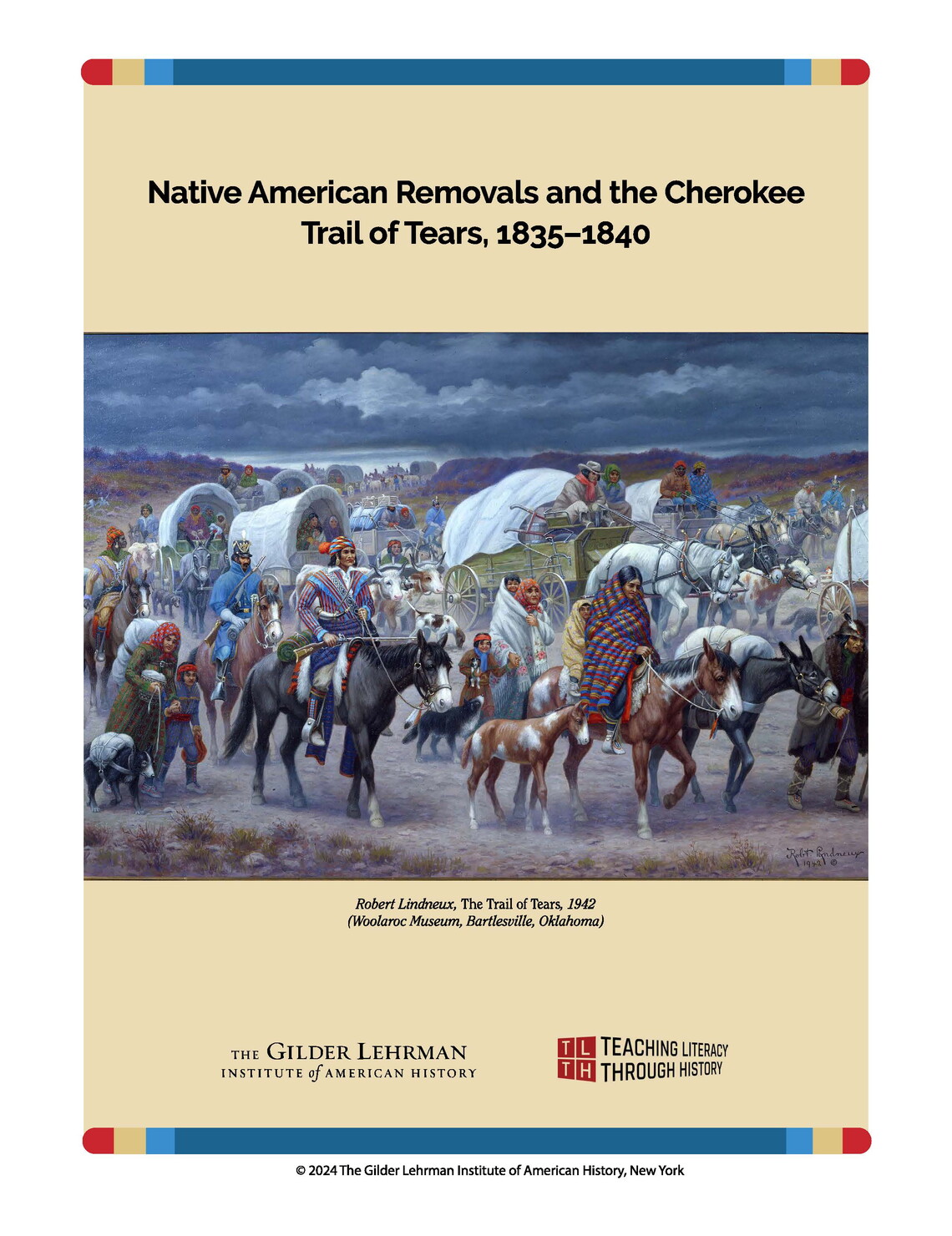Lesson by Dale Hoggatt
Essay by K. Tsianina Lomawaima, Arizona State University
Grade Level: 3–5
Number of Class Periods: 4
Primary Era: National Expansion and Reform, 1815–1860

Over the course of four lessons, students will explore Native American removals and Indian removal policies through primary sources: correspondence from President Andrew Jackson, Chief John Ross, and witnesses to the Trail of Tears, images, population data, and a map. They will also compare and contrast the information from primary sources with an artistic work. They will demonstrate their understanding through analysis of primary sources in class discussions, drawing, and writing.
Lesson Plan Author: Dale Hoggatt
Historical Background Essay by: K. Tsianina Lomawaima, Arizona State University
CCSS.ELA-LITERACY.RI.3.7: Use information gained from illustrations (e.g., maps, photographs) and the words in a text to demonstrate understanding of the text (e.g., where, when, why, and how key events occur).
CCSS.ELA-LITERACY.RI.3.9: Compare and contrast the most important points and key details presented in two texts on the same topic.
CCSS.ELA-LITERACY.RI.4.1: Refer to details and examples in a text when explaining what the text says explicitly and when drawing inferences from the text.
CCSS.ELA-LITERACY.RI.5.3: Explain the relationships or interactions between two or more individuals, events, ideas, or concepts in a historical, scientific, or technical text based on specific information in the text.
CCSS.ELA-LITERACY.RI.5.9: Integrate information from several texts on the same topic in order to write or speak about the subject knowledgeably.
What was the Trail of Tears?
How did US politicians explain their decision to remove Native peoples from their land?
How did Native people resist Indian removal policies?
What were the results of Indian removal policy?
President Andrew Jackson’s Letter to the Cherokee, “To the Cherokee Tribe of Indians East of the Mississippi,” March 16, 1835
A Portrait of John Ross, a Cherokee Chief, by Charles Bird King (1785–1862)
Letter from Chief John Ross “To the Senate and House of Representatives,” The Papers of Chief John Ross, ed. Gary E. Moulton, vol. 1, 1807–1839
Major General Winfield Scott’s Order No. 25, May 17, 1838, Letters Received and Other Papers of Major General Winfield Scott Relating to the Cherokees, May 14–22
Letter from “A Native of Maine, traveling in the Western Country,” 1839, New York Observer, January 26, 1839
Letter from Cherokee leader William Shorey Coodey to John Howard Payne, August 13, 1840